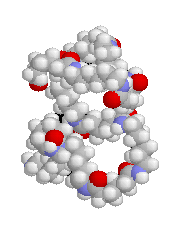Understanding Polymers: The Science Behind Versatile Products
Understanding Polymers: The Science Behind Versatile Products
Blog Article
Using the Power of Polymers: Understanding the Substantial Uses and Favorable Impacts
Polymers, with their diverse chemical structures and properties, have become vital in numerous industries, transforming the way we connect with products each day. From the product packaging that safeguards our food to the fibers that outfit us, the applications of polymers are vast and varied. Beyond their common visibility exists a much deeper understanding of their positive impacts, reaching much past mere benefit. As we explore the substantial uses of polymers and their function in shaping an extra lasting, efficient, and cutting-edge future, it comes to be evident that their capacity is as large as the particles themselves.
Versatility in Everyday Products
Polymers show impressive adaptability in a broad selection of day-to-day products, showing their vital function in contemporary culture. From the adaptable plastic case of smart devices to the sturdy fibers in clothing, polymers have actually reinvented the way we communicate with products in our every day lives. One of one of the most typical uses of polymers remains in packaging products. Polyethylene, for instance, is widely utilized in food packaging due to its light-weight, resilient, and moisture-resistant homes. Furthermore, polymers play an important function in the automobile sector, where they are used in manufacturing lightweight elements that enhance gas efficiency.
In addition, polymers have discovered their way right into the medical care industry, with applications ranging from clinical devices to medication delivery systems. For example, naturally degradable polymers are made use of in stitches and implants, minimizing the threat of adverse responses in individuals (Polymers). In the building and construction sector, polymers are included right into paints, adhesives, and insulation products, boosting longevity and power performance. Overall, the adaptability of polymers in daily products emphasizes their significance in driving innovation and enhancing lifestyle.
Sustainability in Material Innovations
With the continuous focus on environmental awareness and source performance, the emphasis shifts in the direction of sustainability in material technologies, mirroring a growing commitment to accountable manufacturing methods throughout various industries. Recently, there has actually been a notable rise in the advancement of lasting products, specifically within the world of polymers. These innovative materials are designed to minimize environmental impact throughout their whole lifecycle-- from sourcing resources to disposal or recycling.
One considerable facet of sustainability in material developments is the concept of biodegradability. Eco-friendly polymers have actually gathered attention for their ability to break down normally into safe by-products, reducing waste and air pollution. Additionally, check my blog the usage of recycled polymers acquired from post-consumer or post-industrial resources is getting traction as a method of promoting a round economic situation and lowering reliance on virgin materials.

Enhancing Performance in Design
Enhancing performance in design needs a precise assimilation of advanced modern technologies and exact methodologies to maximize capability and performance in numerous commercial applications. Polymers play a critical duty in this undertaking, offering a large range of benefits that boost the performance of design materials and components.
One key aspect of improving performance in engineering is the ability of polymers to boost toughness and toughness. By including polymers into design styles, manufacturers can develop light-weight yet robust structures that can withstand high degrees of anxiety and stress. This characteristic is specifically important in industries such as aerospace, automobile, and building and construction, where the demand for strong yet light-weight products is paramount.
Moreover, polymers can additionally improve efficiency by supplying thermal and site link chemical resistance, reducing rubbing, and boosting electrical conductivity. These properties make polymers ideal for a wide variety of design applications, including seals, bearings, finishes, and digital components. Polymers. By harnessing the special homes of polymers, designers can enhance the efficiency of their styles and develop extra effective and reputable products
Influence on Clinical Improvements
The assimilation of sophisticated polymer modern technologies has actually substantially added to advanced developments in the clinical field. Polymers have played an important duty in contemporary medical advancements, varying from medicine delivery systems to tissue engineering. One of the crucial locations where polymers have made a substantial effect is in the development of biodegradable stitches and implants. These polymers can be tailored to deteriorate at a specific rate, enabling much better wound healing and click here for more reducing the demand for added surgeries to eliminate implants.
Furthermore, polymer-based materials are increasingly being used in clinical gadgets such as catheters, stents, and prosthetics because of their biocompatibility and convenience. Polymer layers on medical tools can prevent infections and improve total patient end results - Polymers. Furthermore, improvements in nanomedicine have actually made it possible for using polymer nanoparticles for targeted medicine delivery, boosting the effectiveness and decreasing negative effects of various drugs
Function in Environmental Conservation

In addition, polymers are utilized in water treatment procedures, assisting in the filtration and recycling of water sources. This aids in minimizing water contamination and ensuring accessibility to clean water for both human intake and environmental health. Polymers likewise play a duty in agriculture via the development of eco-friendly composts and controlled-release plant foods, promoting lasting farming practices.
Final Thought
In conclusion, polymers have actually shown to be a versatile and vital material in numerous industries, from daily products to engineering and medical innovations. Their influence on sustainability, efficiency improvement, and ecological conservation is considerable. Recognizing the considerable uses polymers underscores their value in driving development and progress in multiple fields. The continued expedition and use of polymers will most certainly lead to more advancements and positive impacts on culture.
Report this page